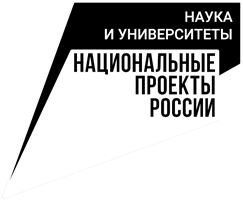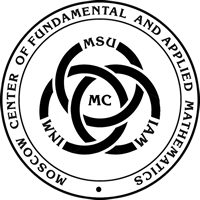45th meeting of the seminar
«Supercomputer simulation of the Earth system»
The seminar is devoted to various aspects of the application of supercomputer modeling methods for solving weather and climate forecasting problems.
Seminar Leader:
- Sadovnichy V.A., academician, rector of Lomonosov Moscow State University
Co-leaders of the seminar:
- Wilfand R.M., Doctor of Technical Sciences, Scientific Director of the Hydrometeorological Center of Russia
- Dobrolyubov S.A., Corr. RAS, Dean of the Faculty of Geography, Lomonosov Moscow State University
- Yakovlev N.G., Doctor of Physics and Mathematics, Leading Researcher, Institute of Numerical Mathematics, RAS
- Stepanenko V.M., Doctor of Physics and Mathematics, Deputy Director of RCC MSU
Scientific Secretary of the seminar:
- Mortikov E.V., Ph.D., Researcher of RCC MSU
Seminar topics cover the following main areas (but not limited to them):
- Methods and technologies for using supercomputer computing in interdisciplinary problems of environmental sciences.
- Mathematical modeling of processes in the climate system.
- Application of supercomputer technologies to solve problems of weather forecasting.
- Application of supercomputer technologies to solve problems of assessing climate change and their consequences for the environment.
- Application of supercomputer technologies for the complex solution of problems of environmental protection, including natural hazards and man-made disasters.
PROGRAM
17:30 (GMT+3)
| A.V. Olchev | Lomonosov Moscow State University |
| S.K. Gulev | Shirshov Institute of Oceanology RAS |
CARBON POLYGONS IN THE RUSSIAN FEDERATION: MAIN GOALS, OBJECTIVES AND PROSPECTS
A pilot project to create a network of carbon landfills in the Russian Federation is being implemented as part of the national action plan to adapt to modern climate change and its consequences, ensure environmental safety and improve the state of the environment. The main goal of the project is to create a regional network of observations of greenhouse gas fluxes on the territory of the Russian Federation in order to obtain reliable information on the integral values and scales of temporal and spatial variability of absorption and emission of key greenhouse gases by terrestrial (forests, forest-steppe, steppe, swamps, agricultural lands) and marine ecosystems, including areas with permafrost, as well as obtaining data on the sensitivity of flows to changes in environmental conditions. Research will be carried out using an integrated approach, including ground-based measurements (balance, pulsation, chamber), remote sensing, mathematical modeling, providing a complete picture of the structure of the carbon balance and greenhouse gas fluxes. The main tasks of carbon polygons are:
- Monitoring observations of the emission and absorption of greenhouse gases in natural ecosystems by means of ground and remote measurement methods.
- Estimation of spatial and temporal variability of emission and absorption of greenhouse gases in representative natural landscapes, as well as determination of integral values of fluxes for different territories for certain time intervals (day, month, year).
- Development of technological solutions to control the emission of greenhouse gases absorption by natural ecosystems, aimed at reducing their emission and increasing their absorption from the atmosphere.
- Development and adaptation of technologies for remote monitoring of the structure and condition of vegetation and soil cover, emission and absorption of greenhouse gases using ground-based measurement data and mathematical modeling methods.
- Training of highly qualified personnel in the field of methods of environmental control and monitoring of greenhouse gas flows, promising technologies for the low-carbon industry, agriculture and municipal economy.
Carbon polygons for monitoring greenhouse gas fluxes are planned to be evenly distributed in the most representative natural terrestrial and aquatic ecosystems, which make it possible to assess the scale of spatial and temporal variability of greenhouse gas emissions and absorption in the territory of the Russian Federation, taking into account the existing diversity and variability of climatic conditions, land use patterns, vegetation and soil cover , relief. The program of carbon landfill activities currently includes 14 regions of the Russian Federation: the Kaliningrad region, the Krasnodar Territory, the Chechen Republic, the Republic of Tatarstan, the Republic of Bashkortostan, the Yamalo-Nenets and Khanty-Mansi Autonomous Okrugs, Novosibirsk, Moscow, Tyumen, Sverdlovsk, Tver, Voronezh , Sakhalin region. The landfill operators are the leading universities and research institutes of the Russian Federation.
The meeting of the seminar will be held in the form of a webinar on the Zoom platform.
Link to the conference:
https://us02web.zoom.us/j/89350123464?pwd=NC9kbmJGcnVSb2lPYUZoTFVMdHFjdz09
Meeting ID: 893 5012 3464
Passcode: 971307
To simplify our work during the seminar, please do the following: check in advance that Zoom works for you (in the Zoom application settings you can check the quality of the speakers and microphone) and enter your last name, first name in your profile settings and middle name in full (this can be done on your profile page (https://us02web.zoom.us/profile) - in this case, conference colleagues will see how to contact you.
Video presentations are posted on our YouTube channel. We advise you to subscribe to the channel to receive notifications about the availability of new video reports.

